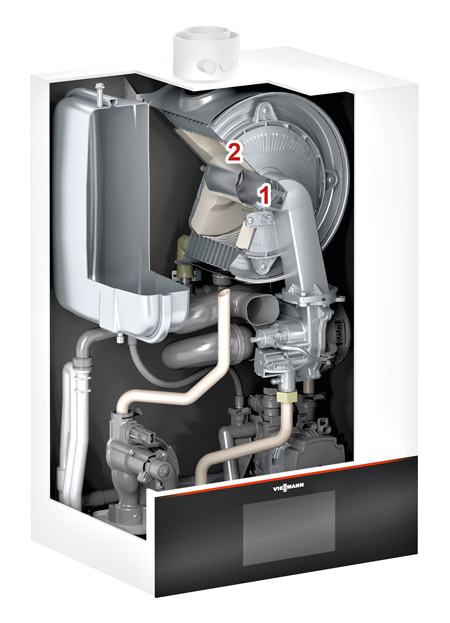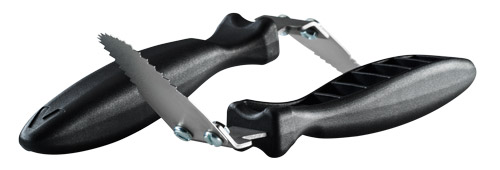Text Meinolf Droege ––– Photography
Even the latest heating technology occasionally needs to be serviced by qualified professionals to ensure permanently high levels of efficiency. And to work efficiently, these specialists require the best possible tools. Viessmann supplies these, too. One example is its cleaning spatula. Although nothing very spectacular, it has years of proven service and is used by almost every maintenance engineer to clean away deposits on heat exchangers in gas boilers, something it does quickly and thoroughly yet gently. “We regularly take another look at products, even ones that have been in the range for years, to identify improvements that will optimise costs and quality,” explains Anton Ewitsch, Global Lead Buyer Polymers at Viessmann. “Several teams operate a kind of CIP – a continuous improvement process – in the various product groups,” he adds.
Viessmann does not use injection moulding in its manufacturing operations, so external expertise is required for such products. It first collaborated with LKH in the summer of 2021. “And we were highly impressed. LKH didn’t just answer our questions about optimising the handle. It proactively suggested a whole host of improvements throughout the entire value chain and backed these up with figures. An added bonus was that it also submitted the lowest quote,” reveals Ewitsch.
Sustainability is about more than just the material
The initial focus was on the plastic component, the handle. The design was revised to make it lighter and more ergonomic. The virgin polyamide previously used for the handle, which had a 15 per cent glass fibre content, has now been replaced by a recycled polyamide with 30 per cent glass fibres. The lower weight also cuts costs and the carbon footprint, and both are reduced further still by the switch to 100 per cent recycled materials.
In a second stage, LKH offered improvements to additional process steps, from LKH buying in the metal part itself through to production, packaging and delivery to Viessmann on pallets. “LKH has also revamped the packaging. Being smaller means it uses less material and more packs fit on each pallet, which also makes logistics more cost-effective and sustainable,” adds Tahir Butt, Value & Cost Engineer Strategic Procurement at Viessmann.
Controll over processes
Given that LKH has now taken over the entire process chain, it is also responsible for quality. Viessmann was fine with that, because LKH always ensured extremely transparent project management, including clear communication and workflows. It reliably met all deadlines and simply got on with delivering the product. The fact that LKH has extensive experience of producing hybrid components for Rittal and other customers also played a role.
The first successful project provided ideas for further potential optimisations, including for more complex Viessmann products. Especially given the difficult situation at present, it was important to move beyond the respective confines of component design, injection moulding technology and material selection, and to identify and combine potential throughout the entire value chain. “Let me put it this way, we need partners who think along the same lines as us and take us forwards,” sums up Ewitsch.

